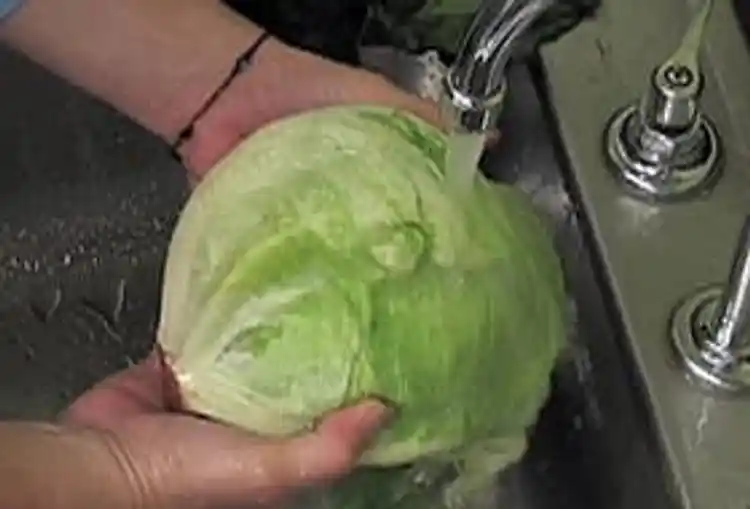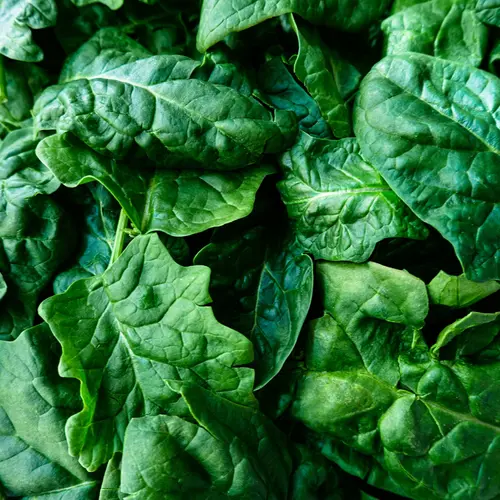The Truth About Washing Greens

Hide Video Transcript
Video Transcript
Narrator
Bagged salad greens, like fresh spinach and lettuce, have been at the center of several E-coli outbreaks in recent years. Michael Doyle heads up food safety research at the University of Georgia. He's not surprised by how susceptible our fresh produce supply is to contaminants. Michael Doyle, PhD
I guess the surprise is that it's taken this long for the produce industry to get this wake-up call that we need to do something to reinvent bagged salad. Narrator
Fresh vegetables are vulnerable to bacteria because they often come in contact with manure and water—two common routes for E-coli to transfer from cattle feces to agricultural fields. Scott Agerton
It could happen at any time to any food that's grown in the ground if it's not taken care of properly. Narrator
Although sanitary standards by U.S. growers are among the highest in the world, consumers need to be aware that there is always potential risk. Scott Agerton
There's always going to be a chance, no matter how perfect you try and be. I think the best thing that can probably be done for the consumer is, even if a product comes in a bag that says pre-washed and cleaned, they should just take it upon themselves to just wash it themselves again. Narrator
Though washing is no guarantee, it can significantly decrease the odds of becoming infected with bacteria if done properly. Michael Doyle, PhD
The key to remember for all produce in general is that if bacteria are present, they're usually on the surface. So consider the surface to be contaminated. : Running water.
Michael Doyle, PhD
By removing the first two or three layers of the outer leaves and coring the lettuce, then washing your hands well before you touch the inside leaves, and then washing the inside leaves and picking those apart. That would be the best approach. Narrator
And if you don't mind the taste, you can also try a lemon juice or vinegar rinse. Michael Doyle, PhD
Acetic acid, which is present in vinegar, for example, can be quite effective in killing harmful bacteria. Narrator
Washing can sometimes be ineffective when contamination occurs at or near where packaged greens might be cored and bagged. Just like with the human body, bacteria can also get inside leaves through a cut or tear. Michael Doyle, PhD
It gets into the tissue and then it's very difficult to remove by washing. Narrator
Contrary to popular belief, freezing fresh vegetables at home is not an effective way to kill bacteria, although store-bought frozen veggies are thought to be safe due to the way they're processed. While it may slay your Caesar's, heat can be an effective means of killing bacteria for the types of greens that can be cooked. Michael Doyle, PhD
Get it to 160 degrees, internal temperature, that is throughout, and it should be safe. Narrator
For WebMD, I'm Damon Meharg. 